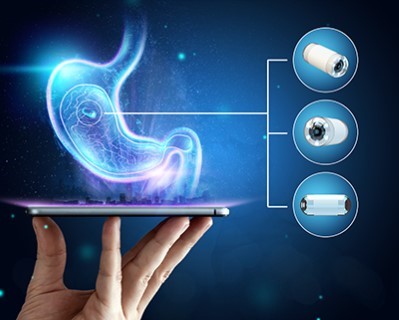Capsule Endoscopy
- Purpose: Visualizes the small intestine to diagnose conditions like Crohn's disease, tumors, and bleeding.
- Procedure: The patient swallows a small capsule with a camera that takes pictures of the digestive tract.
-
Note: The information provided here applies to elective Capsule Endoscopy procedures under standard conditions. However, specifics may vary depending on individual patient factors, such as the presence of gastrointestinal conditions, patient tolerance, or any complications that might arise during or after the procedure. The patient’s overall health, the complexity of the examination, and the need for additional interventions or follow-up procedures can also influence the procedure and recovery process.
Inpatient/Outpatient
Capsule Endoscopy is typically performed as an outpatient procedure. It is a non-invasive diagnostic test that allows patients to complete the examination while going about their daily activities. The procedure is conducted in a hospital or specialized clinic, where patients are provided with the capsule and instructions for the procedure.Hospital Stay Duration
Patients undergoing Capsule Endoscopy generally do not require a hospital stay. The procedure involves swallowing a small, pill-sized camera that takes images of the digestive tract as it moves through the intestines. The entire process typically takes about 8 hours, during which patients can usually leave the medical facility and continue with most of their normal activities. After the procedure, patients return to the clinic to return the recording device and review the results.Type of Anesthesia
No anesthesia is required for Capsule Endoscopy. The patient simply swallows the capsule with water, and it naturally travels through the gastrointestinal tract, capturing images along the way.Travel After Procedure
Patients are free to travel and engage in light activities during the Capsule Endoscopy procedure, as it does not require sedation or anesthesia. However, patients should avoid strenuous activities, including heavy exercise, during the 8-hour recording period. They should follow specific instructions from their healthcare provider regarding any travel or activity restrictions.Pre-procedure Preparation
Preparation for Capsule Endoscopy typically involves fasting for at least 12 hours before swallowing the capsule to ensure clear images of the digestive tract. In some cases, patients may be asked to take a laxative the day before the procedure to further clear the intestines. The healthcare provider will provide specific pre-procedure instructions tailored to the patient’s needs.Procedure Duration
The Capsule Endoscopy procedure itself takes about 8 hours, during which the capsule travels through the digestive tract, capturing images. The capsule is then naturally passed in the stool, usually within 24 to 48 hours. The actual recording period for the procedure is limited to the 8-hour period after swallowing the capsule.Recovery Time
There is no recovery time needed after swallowing the capsule, and patients can usually resume normal activities immediately after the procedure is completed. Patients should ensure that the recording device remains attached during the procedure and avoid activities that could disrupt the recording.Estimated Cost
The cost of Capsule Endoscopy can vary depending on the clinic, geographic location, and the specifics of the patient’s condition. For accurate cost information, patients should contact their healthcare provider or treatment center directly.Post-procedure Care
After the Capsule Endoscopy, patients are typically instructed to return the recording device to their healthcare provider for analysis. There is usually no special care required after the procedure, as the capsule is naturally expelled from the body. Patients should contact their healthcare provider if they experience any unusual symptoms, such as abdominal pain or if the capsule is not passed within a few days. Follow-up appointments may be necessary to discuss the results of the endoscopy and any further treatment if abnormalities were detected.

